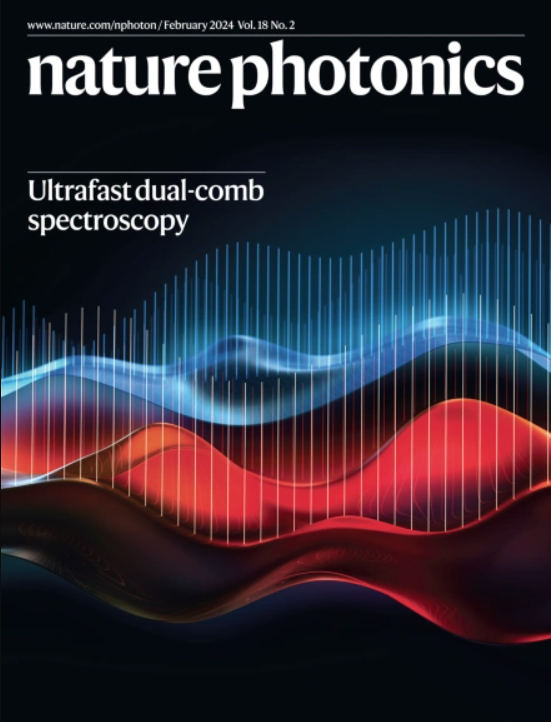Quantum state processing through controllable synthetic temporal photonic lattices
IF 32.3
1区 物理与天体物理
Q1 OPTICS
引用次数: 0
Abstract
Quantum walks on photonic platforms represent a physics-rich framework for quantum measurements, simulations and universal computing. Dynamic reconfigurability of photonic circuitry is key to controlling the walk and retrieving its full operation potential. Universal quantum processing schemes based on time-bin encoding in gated fibre loops have been proposed but not demonstrated yet, mainly due to gate inefficiencies. Here we present a scalable quantum processor based on the discrete-time quantum walk of time-bin-entangled photon pairs on synthetic temporal photonic lattices implemented on a coupled fibre-loop system. We utilize this scheme to path-optimize quantum state operations, including the generation of two- and four-level time-bin entanglement and the respective two-photon interference. The design of the programmable temporal photonic lattice enabled us to control the dynamic of the walk, leading to an increase in the coincidence counts and quantum interference measurements without recurring to post-selection. Our results show how temporal synthetic dimensions can pave the way towards efficient quantum information processing, including quantum phase estimation, Boson sampling and the realization of topological phases of matter for high-dimensional quantum systems in a cost-effective, scalable and robust fibre-based setup. A scalable quantum processor based on the discrete-time quantum walk of time-bin-entangled photon pairs on synthetic temporal photonic lattices is realized on a fibre-coupled loop system. Key fundamental quantum operations are demonstrated.


通过可控合成时态光子晶格实现量子态处理
光子平台上的量子行走是量子测量、模拟和通用计算的一个物理丰富的框架。光子电路的动态可重新配置性是控制量子行走和检索其全部运行潜力的关键。基于门控光纤环路中的时间分段编码的通用量子处理方案已经提出,但尚未得到证实,主要原因是门控效率低下。在这里,我们提出了一种可扩展的量子处理器,它基于在耦合光纤环路系统上实现的合成时序光子晶格上的时间宾包纠缠光子对的离散时间量子行走。我们利用这一方案对量子态操作进行路径优化,包括生成两级和四级时宾纠缠以及相应的双光子干涉。可编程时空光子晶格的设计使我们能够控制行走的动态,从而增加了巧合计数和量子干涉测量,而无需再进行后选择。我们的研究结果表明了时间合成维度如何为高效量子信息处理铺平道路,包括量子相位估计、玻色子采样以及在经济、可扩展和稳健的光纤设置中实现高维量子系统的物质拓扑相位。
本文章由计算机程序翻译,如有差异,请以英文原文为准。
求助全文
约1分钟内获得全文
求助全文
来源期刊

Nature Photonics
物理-光学
CiteScore
54.20
自引率
1.70%
发文量
158
审稿时长
12 months
期刊介绍:
Nature Photonics is a monthly journal dedicated to the scientific study and application of light, known as Photonics. It publishes top-quality, peer-reviewed research across all areas of light generation, manipulation, and detection.
The journal encompasses research into the fundamental properties of light and its interactions with matter, as well as the latest developments in optoelectronic devices and emerging photonics applications. Topics covered include lasers, LEDs, imaging, detectors, optoelectronic devices, quantum optics, biophotonics, optical data storage, spectroscopy, fiber optics, solar energy, displays, terahertz technology, nonlinear optics, plasmonics, nanophotonics, and X-rays.
In addition to research papers and review articles summarizing scientific findings in optoelectronics, Nature Photonics also features News and Views pieces and research highlights. It uniquely includes articles on the business aspects of the industry, such as technology commercialization and market analysis, offering a comprehensive perspective on the field.
 求助内容:
求助内容: 应助结果提醒方式:
应助结果提醒方式:


